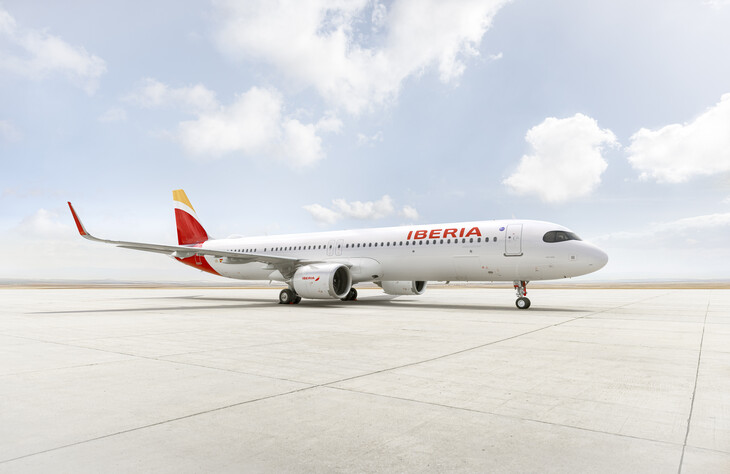Source: Iberia

- Iberia was the worldwide launch airline for the Airbus A321XLR, consolidating its position as a benchmark in the aviation industry
- With this aircraft, the company is pioneering long-haul connectivity by operating transoceanic flights for the first time with a single-aisle model
- Thanks to the A321XLR, Iberia has increased frequencies on strategic routes such as Boston and Puerto Rico, turned Washington into a year-round operation, and will soon add new destinations like Recife and Fortaleza
- The Spanish airline currently operates five A321XLR aircraft, will add one more before the end of 2025, and complete its order with two additional units in 2026
A year ago, Iberia became the first airline in the world to operate the Airbus A321XLR, a model that has transformed transatlantic connectivity with greater efficiency and flexibility. On November 14, this aircraft made its first long-haul flight to Boston, marking the beginning of a new era in transoceanic travel. Today, we celebrate a year in which the A321XLR has proven that it is possible to combine range and efficiency to offer customers more options and flexibility.
This aircraft stands out as one of the most efficient in the market, delivering up to 40% fuel savings compared to wide-body models. This capability enables transatlantic routes with a single-aisle aircraft while maintaining the high comfort standards of Iberia’s long-haul fleet.
The A321XLR features the new Airspace cabin, offering larger overhead bins, LED lighting, and a greater sense of space to enhance the onboard experience. It is configured with two classes—Business and Economy—accommodating a total of 182 seats.
More destinations and frequencies: expansion in the Americas and Brazil
Since its first flight to Boston, the A321XLR has become a keystone in strengthening Iberia’s long-haul network. Thanks to its range and efficiency, the airline has been able to increase frequencies on key routesand unlock new opportunities on both sides of the Atlantic. Boston has grown from one daily flight to two; Washington, previously seasonal, is now offered year-round; and Puerto Rico has also increased from one to two daily flights between Madrid and San Juan, reinforcing connectivity with the Caribbean.
In the coming weeks, the XLR will enable Iberia to add new destinations to its network: Recife, launching December 13, and Fortaleza, on January 19—both with three weekly frequencies—expanding direct flights from Madrid to northern Brazil.
This model not only opens new routes but also allows for more efficient fleet management, adapting capacity to market demand and optimizing the use of wide-body aircraft for other operations. This flexibility translates into more frequencies and better schedules, offering customers more connection options and a more competitive product.
Ramiro Sequeira, Iberia’s Chief Production Officer, stated: “The Airbus A321XLR has transformed our long-haul strategy, enabling us to open new destinations and increase frequencies with unprecedented efficiency. Its range and fuel savings give us unique flexibility to adapt capacity to each market and optimize fleet utilization. All of this translates into more connection options and more convenient schedules for our customers, reinforcing our commitment to delivering a competitive and high-quality experience.”
An expanding fleet
In 2019, Iberia placed an order for eight A321XLR aircraft to strengthen its long-haul strategy. The airline currently operates five units and will add one more before the end of 2025. The final two units will arrive in 2026, completing the planned incorporation of eight A321XLRs. This mix of aircraft types—A350, A330, and A321XLR—allows Iberia to tailor capacity to market demand, optimize fleet utilization, and offer more frequencies, resulting in better schedules and more connection options for customers.
Commitment to the future
The first anniversary of the A321XLR confirms Iberia’s commitment to an innovative, flexible, and sustainable growth model. With this aircraft, the company expands its network, connects new destinations, and strengthens its position in strategic markets while maintaining its pledge to deliver a competitive product and a high-quality experience.
